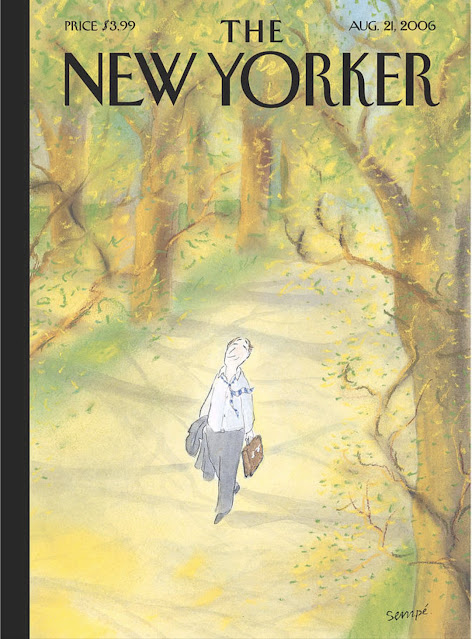Jean-Jacques Sempé, who is best known for his illustrations for the Little Nicolas series of books with writer René Goscinny, died peacefully on August 11, 2022, at the age of 89.
Photo: © AFP
Jean-Jacques Sempé was a French cartoonist and illustrator, whose crowded cartoon panels gave gentle commentary on the absurdity and banality of everyday city life. Since the 1950s, his drawings – including sequential ones – have appeared in publications throughout France, including Sud-Ouest Dimanche, Ici Paris and Paris Match…Together with writer René Goscinny, Sempé created the charming adventures of ‘Le Petit Nicolas’ (‘Little Nicolas’, 1954-1965) – originally as a comic strip, then as an illustrated text feature – starring a Parisian school boy telling about his everyday life.
Besides magazine cartoons, Jean-Jacques Sempé also illustrated posters, advertisements, postcards and stickers, as well as books … Following the success of ‘Le Petit Nicolas’, publisher Denoël has also released over 25 book collections with Sempé cartoons, starting with ‘Rien N’est Simple’ (1962), ‘Tout Se Complique’ (1963) and ‘Sauve Qui Peut’ (1964).
The Daily Cartoonist has much more here.
As for me, Sempé was a master and there was so much life in his inkline. He was so renowned that (so I have heard) you could have just mailed him a fan letter addressed to "Sempé, Paris, France" and it would reach the master cartoonist, no problem.
Here are a few of his many, many cartoons.
Above: the back cover to CARTOONS THE FRENCH WAY with a wordless Sempé gag.
Here are some of his cartoons from the 1955 paperback CARTOONS THE FRENCH WAY .

Sempé was in his early 20s when he drew these cartoons.

Best known today for his New Yorker covers, his depictions of Paris life are seminal. The New York Times, in this 2006 article, has called his work quintessentially French:
"His precise, elegant drawings are often set in a Paris that even Parisians dream of: a city of mansard roofs, high windows and wrought-iron balconies, where all the cars still look like Deux-Chevaux or 1950s Citroëns. Dwarfed by their surroundings, his figures - smallish men, balding, a little portly, with big noses and tidy little mustaches, their double-chinned, nicely coiffed wives in polka-dot frocks - are French Everymen, dignified and put upon at the same time. They nevertheless speak to the international human plight: the Thurberian power struggle between men and women, the daily need to keep up appearances, the unending cycle of tiny victories and middle-size defeats."

The composition, the rain, the look on the peoples' faces: all so well done, so seemingly effortless.

I like the look on her face.

Yeah, nude models really do get bored. And cold.

In the above gatefold, you can see his attention to a real sense of place.
 "I showed her! I didn't touch a dish for two months!"
"I showed her! I didn't touch a dish for two months!"

Above: clicking to enlarge will show you how good the composition is on
this. At first glance, the squiggly, curly-cue line was, I thought, part
of the store window -- but within a second, I discovered the gag.

A typical gag: a city scene with complex, busy ink work with a clear layout of who to watch to understand the gag.

Phaidon Press published a number of Sempé's works. Phaidon maintains a blog, The Nicholas Club, named for the title character in a series of children's books by Goscinny and Sempé.

Again, the reason that so many cartoons are wordless is because you
don't have to know French to "get" them. Selling cartoons is Europe is
easier when no words are used. And that's pretty hard to do!

Above a lovely, dry gag line. At first, I didn't see him amongst the dancing natives!
 More links:
More links:
Christopher Wheeler shares photos of Sempé memorabilia (which is where I took the above image).
Read Yourself Raw profile.
Mike Lynch Cartoons blog (Yes, you're soaking in it now!) has more on French cartoon books here.
Above from the hardcover collection of cartoons IN FRANCE NOTHING IS SIMPLE by Jean-Jacques Sempé. Copyright 1964 by Holt, Rinehart and Winston, Inc.
And now a series of drawings by Jean-Jacques Sempé for CHARLIE MENSUEL No. 104 September 1977.
Before CHARLIE HEBDO ("Charlie Weekly"), it was CHARLIE MENSUEL ("Charlie Monthly").
Here's the front and back covers, and an interior cartoon sequence by Jean-Jacques Sempé from issue number 104, September 1977.
This cartoon is a portrait of men and women through the decades. It works like a cartoon and reads like a lovely short story. You may want to open these scans onto a new page so you can really enjoy all of the wonderful drawing.
The back cover:
Francis Marmande in Le Monde:





















No comments:
Post a Comment